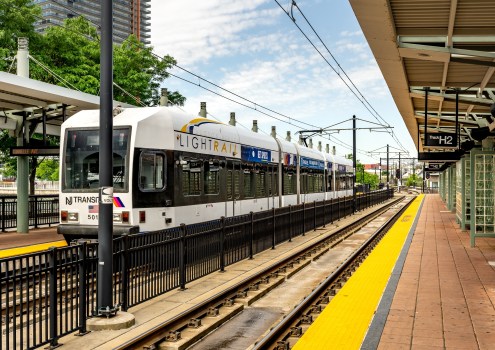Following a NJ Transit rider’s positive measles test, health officials in New Jersey are advising residents to remain vaccinated against the virus and to be vigilant for any symptoms.
According to a news statement from the state Department of Health, the case included a resident of Hudson County who contracted the disease after having close contact with a confirmed measles case in a non-New Jersey citizen.
The unidentified potentially contagious person was on public transit from August 13 to August 15, prompting authorities to alert other passengers to the possibility of contracting the extremely contagious sickness.
During the designated hours, everyone who rode the following routes and stations could have been at risk:
-
NJ Transit Hudson-Bergen Light Rail
,
8th Street, Bayonne to Hoboken branch:
9-11:30 a.m., and 6-9 p.m. on Aug. 13, 14 and 15; -
8th Street Light Rail Station in Bayonne:
9-11:30 a.m., and 6-9 p.m. on Aug. 13, 14 and 15; -
PATH Newark on the World Trade Center Line:
9:15-11:45 a.m., and 5:45-8:30 p.m. on Aug. 13, 14 and 15; -
Exchange Place Station in Jersey City:
9:15-11:45 a.m., and 5:45-8:30 p.m. on Aug. 13, 14 and 15.
A high fever, cough, runny nose, and red, watery eyes are some of the signs of measles. Three to five days after the onset of other symptoms, a rash typically develops.
Health officials cautioned that exposed people may not show symptoms until September 11 if they are sick.
As part of the measles, mumps, and rubella (MMR) vaccinations, which are 97% effective in preventing the disease after two doses given at least 28 days apart, they advised locals to make sure they are up to date on their measles vaccinations.
As of Tuesday, the Centers for Disease Control and Prevention said that 1,375 confirmed cases have been reported in 42 U.S. counties so far this year, the most since the virus was proclaimed eradicated more than 30 years ago.
Although officials claim there is no known ongoing community spread in New Jersey, seven people have tested positive for the virus.
In almost 80% of the more than 2,000 counties with available data, measles vaccination rates among children in the United States decreased during the pandemic, according to a recent peer-reviewed study published in the Journal of the American Medical Association.








